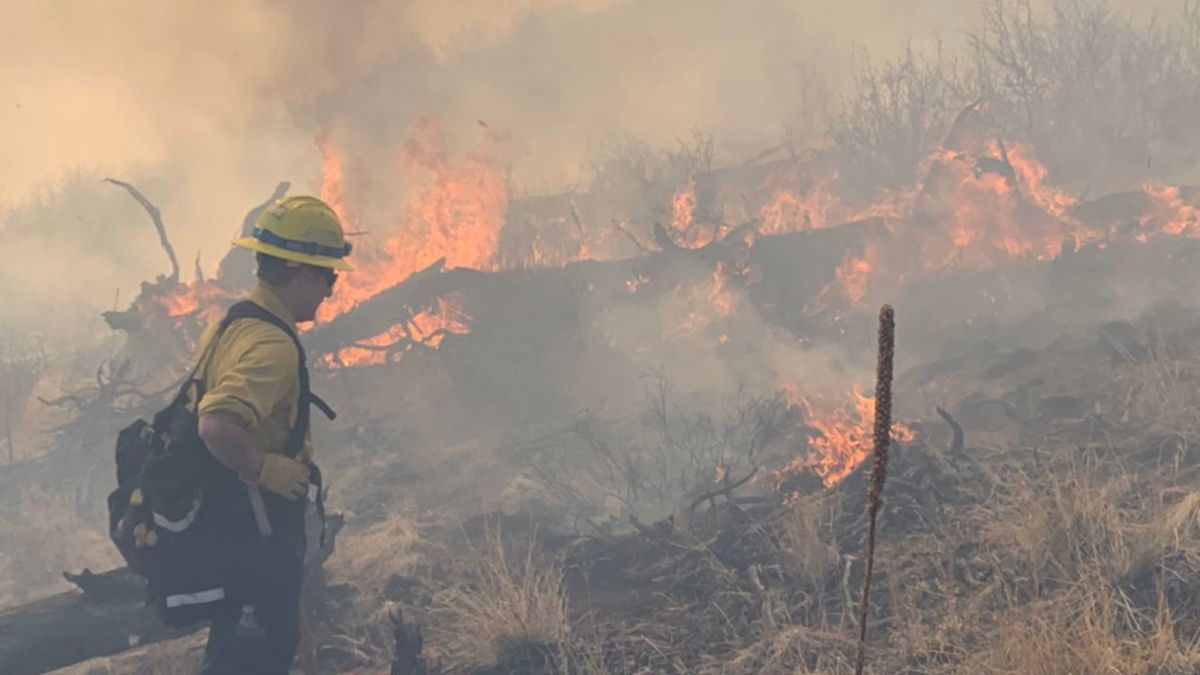Politicians tell Forest Service: Do more to fight wildfires

By SUSAN MONTOYA BRYAN
ALBUQUERQUE, N.M. (AP) — Lawmakers from several western states want the U.S. Forest Service to do more to address a wildfire crisis that they say will surely destroy more landscapes, communities and livelihoods as long-term drought persists around the West.
They grilled Forest Service Chief Randy Moore during a congressional hearing this week, asking about the agency’s spending priorities and the backlog of national forest lands that need to be treated to reduce wildfire risks.
U.S. Rep. Tom Tiffany, a Wisconsin Republican and chair of the House Natural Resources Committee’s panel on federal lands, said the agency needs to usher in a new phase of accountability and transparency if it wants “reverse the tide against this historic crisis.”
Tiffany pointed to a yearslong restoration project that has struggled to treat wide swaths of land spanning four national forests in northern Arizona, saying the agency has reported more acres being treated than what regional managers have submitted.
Moore did not directly address the discrepancy but said the top priority is reducing hazard fuels on more than 4 million acres in high-risk areas nationwide over the next year. He said the Biden administration is requesting more than $320 million for the work on top of money already appropriated by Congress through the infrastructure and inflation spending packages.
“We all recognize that we have an emergency situation out there and we need to be doing more work rather than less work,” Moore said.
The agency’s spending request also includes $56 million for rehabilitation in burned areas, but some of the subcommittee’s members said that’s a drop in the bucket when considering the amount of acres that burn each year.
Lawmakers from California noted that their state has seen seven of its largest wildfires over the last five years, while Colorado in fall 2020 saw two record-setting fires.
New Mexico marked its worst wildfire season in 2022 as a conflagration caused by the federal government charred more than 530 square miles (1,372 square kilometers) of the Rocky Mountain foothills. Hundreds of homes were destroyed and residents in villages throughout the region are now bracing for flooding that will come with the monsoon season.
Moore vowed to work with New Mexico’s congressional delegation after being confronted by U.S. Rep. Teresa Leger Fernández during Wednesday’s hearing about the agency’s failure to use its resources to keep the treatment projects from going awry.
The New Mexico Democrat told Moore that gone are the old growth forests that meant so much to her constituents, along with the livelihoods of the rural residents who depended on them.
“The pain of losing so much, it’s not going to go away,” she said. “Chief Moore, victims in New Mexico are watching us today. What do you have to say to them?”
Seeing the devastation in New Mexico and in other areas wrecked by wildfire, Moore said his heart bleeds and that his employees are moving ahead with treatment projects.
The New Mexico fire forced a pause and evaluation of the Forest Service’s prescribed burn operations last year. The agency has since made changes and the lawmakers agreed that prescribed fires are a necessary tool for clearing out dead and overgrown vegetation at the scale required.
The Forest Service has estimated that more than 460 million acres are at moderate to high risk from wildfire.
Moore acknowledged to the legislators that lawsuits by environmental groups over timber projects and endangered species along with previous policy decisions to limit access to roadless areas within the national forest system have made it harder to treat areas.
